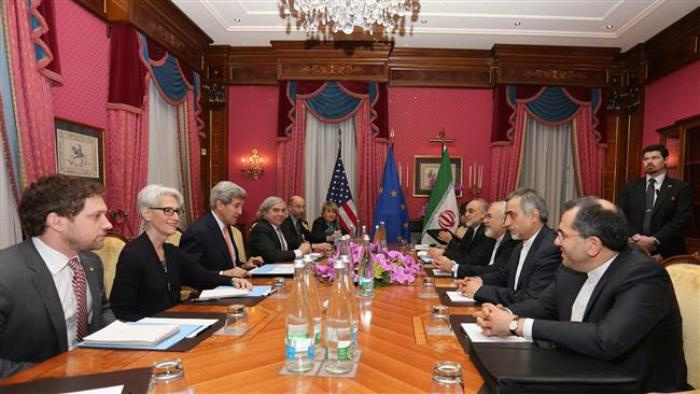How Iran Could Maximize JCPOA Benefits

The Q2 JCPOA Implementation Report delivered by the Ministry of Foreign Affairs to Majles, the parliament, on July 15, 2016, contains a section titled “Non-JCPOA Sanctions”. This section addresses constraints which have stopped Iran’s expectations from the nuclear deal from materializing. Such constraints include the so-called primary sanctions, non-nuclear sanctions related to Iran's alleged sponsorship of terrorism, missile program, Syria, human rights, and also restrictions related to US domestic laws.
With removed sanctions related only to Iran’s nuclear program, it is clear that primary sanctions are there to stay. The question is, how could Iran maximize its benefits from the Joint Comprehensive Plan of Action? Fararu has discussed ways to achieve this in an interview with veteran diplomat Javid Ghorban-oghli, Iran’s former ambassador to Algeria and South Africa.
“Many of the JCPOA’s achievements are sensed tangibly, and to be fair, all sanctions which the JCPOA promised to remove have been lifted” Ghorban-oghli says. “The only hurdle that has remained which is not [directly] related to the JCPOA is the “psychological atmosphere” prevailing Iran-US relations which has made European investors, who are also US trade partners, wary, making them unwilling to kick off trade with Iran.”
“Expectations from the JCPOA should accord with the deal” Ghorban-oghli adds. “Constraints dubbed as non-JCPOA limitations by the foreign ministry in its report to the parliament will not be removed unless further [diplomatic] developments take place, those which require the decision of the establishment in its entirety” he says.
“Obama has proved that he is ready to confront Israel, Saudi Arabia, the Congress and all the critics of his deal with Iran. It is time for Iran to choose while there is a chance to solve non-JCPOA problems. With Trump or Clinton coming to power, the situation will aggravate. Iran should use this window and stop problems from entering an irreversible track” Ghorban-oghli reminds.
“Problems in trade with the EU will exist unless a degree of trust is formed between Iran and the US, and psychological hurdles in relations between Iran and the EU are removed” he stated. “We should defuse tensions in our relations with major states of the region. There is no reason that our ties with Saudi Arabia be this strained. Although they [the Saudis] continue creating tension, diplomacy means curbing, and then reducing tensions and reaching a solution that protects both our interests and Saudis’ dignity.”
How should Iran react to Congress’ efforts to kill the Iran deal? The Foreign Ministry insists that it had made the nuclear deal with the US administration and does not take Congress’ actions into consideration. Ghroban-oghli begs to differ. “Such remarks are meant to please the public opinion inside Iran, otherwise, Congress has its own authority, just as the president has authority. Even NGOs have a degree of power and we can’t overlook some actors” he says. However, this veteran diplomat reminds that “Obama had enough power to seal the nuclear deal despite opposition by the Congress and Israel. Nonetheless, Congress has power to wield, for example in ratifying the Boeing deal with Iran.”
“Iran should create its own playground to influence Washington’s decisions, regardless of the JCPOA. China and India, two independent powers, are engaged in political and economic struggle with the US, but they also hold negotiations and have powerful lobbies in the Congress and NGOs. Iran, on the other hand, has shut the doors, giving opportunity to Saudi Arabia, Israel or even the MEK to act against its interests.”
This interview was originally published in Fararu, a website affiliated with Mohammad-Bagher Ghalibaf.

